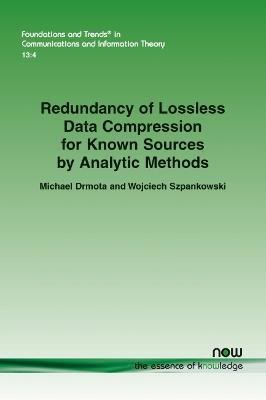Redundancy of Lossless Data Compression for Known Sources by Analytic Methods(English, Paperback, Drmota Michael)
Quick Overview
Product Price Comparison
The term analytic information theory has been coined to describe problems of information theory studied by analytic tools. The approach of applying tools from analysis of algorithms to problems of source coding and, in general, to information theory lies at the crossroad of computer science and information theory. Combining the tools from both areas often provides powerful results, such as computer scientist Abraham Lempel and information theorist Jacob Ziv working together in the late 1970s to develop compression algorithms that are now widely referred to as Lempel-Ziv algorithms and are the basis of the ZIP compression still used extensively in computing today. This monograph surveys the use of these techniques for the rigorous analysis of code redundancy for known sources in lossless data compression. A separate chapter is devoted to precise analyses of each of three types of lossless data compression schemes, namely fixed-to-variable length codes, variable-to-fixed length codes, and variable-to-variable length codes. Each one of these schemes is described in detail, building upon work done in the latter part of the 20th century to present new and powerful techniques. For the first time, this survey presents redundancy for universal variable-to-fixed and variable-to-variable length codes in a comprehensive and coherent manner. The monograph will be of interest to computer scientists and information theorists working on modern coding techniques. Written by two leading experts, it provides the reader with a unique, succinct starting point for their own research into the area.


